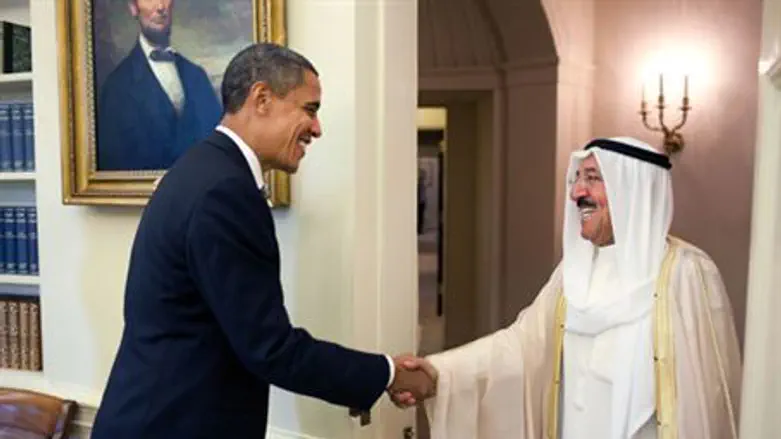
United States President Barack Obama expressed his support for the successful overthrow of long-term Arab leaders in his speech on the Middle East this week, terming overthrows in Egypt and Tunisia a “revolution” that “should not have come as a surprise.” However, his approach failed to appease the Arab world, where many remain angry that America supported the overthrows only when it was clear they would succeed.
Obama expressed full support for the need for revolution, saying that in “too many countries” in the Middle East, citizens had “no honest judiciary... no independent media... no credible political party... no free and fair election.”
However, young Arabs who spoke to the New York Times were unimpressed. “Everybody still has it in the back of their minds how America flip-flopped in their position toward these Arab revolutions,” said Amr Jarrad of Jordan, while Egyptian citizen Ahmed Maher said, “They wait to see who wins and then support them.”
Essam al-Erian of Egypt's Muslim Brotherhood called the speech “disappointing,” saying, “American strategy remains as is. American cover for dictatorial presidents, in Syria, Yemen, Bahrain remains as is.”
Shadi Hamid of Doha agreed, saying, “Obama says U.S. core interests align with Arab homes. Well, why didn't they align for five decades?” Hamid also stated, “This is the Obama style: Try to appeal to everyone and end up disappointing everyone.”
No Call for Regime Change
Obama criticized government violence against anti-regime protesters in Libya, Syria and Bahrain, but stopped short of calling for regime change. Instead, he called on the existing regimes to change.
“The Syrian people have shown their courage in demanding a transition to democracy. President Assad now has a choice: he can lead that transition, or get out of the way. The Syrian government must stop shooting demonstrators and allow peaceful protests; release political prisoners and stop unjust arrests; allow human rights monitors to have access to cities like Dara’a; and start a serious dialogue to advance a democratic transition,” he said of Syria.
Regarding Bahrain, Obama accused Iran of trying to “take advantage of the turmoil there,” but added that Bahraini leaders must end mass arrests and violence against protesters. “The government must create the conditions for dialog,” he said.
He also noted the contributing factor of the lack of economic progress in the region, saying, “The tipping point for so many people is the more constant concern of putting food on the table and providing for a family.”
Iraq: Example of Success?
Surprisingly, Obama referred to Iraq as an example of a country that has succeeded despite ethnic and religious divides. “In Iraq, we see the promise of a multi-ethnic, multi-sectarian democracy,” he said. “There, the Iraqi people have rejected the perils of political violence for a democratic process.”
Tensions in Iraq have somewhat subsided, but the country has suffered bloody terrorist attacks in the recent past, including a string of January bombings in which more than 130 people were killed. Obama noted that Iraq “will face setbacks” but declared that the country is “poised to play a key role in the region if it continues its peaceful progress.”